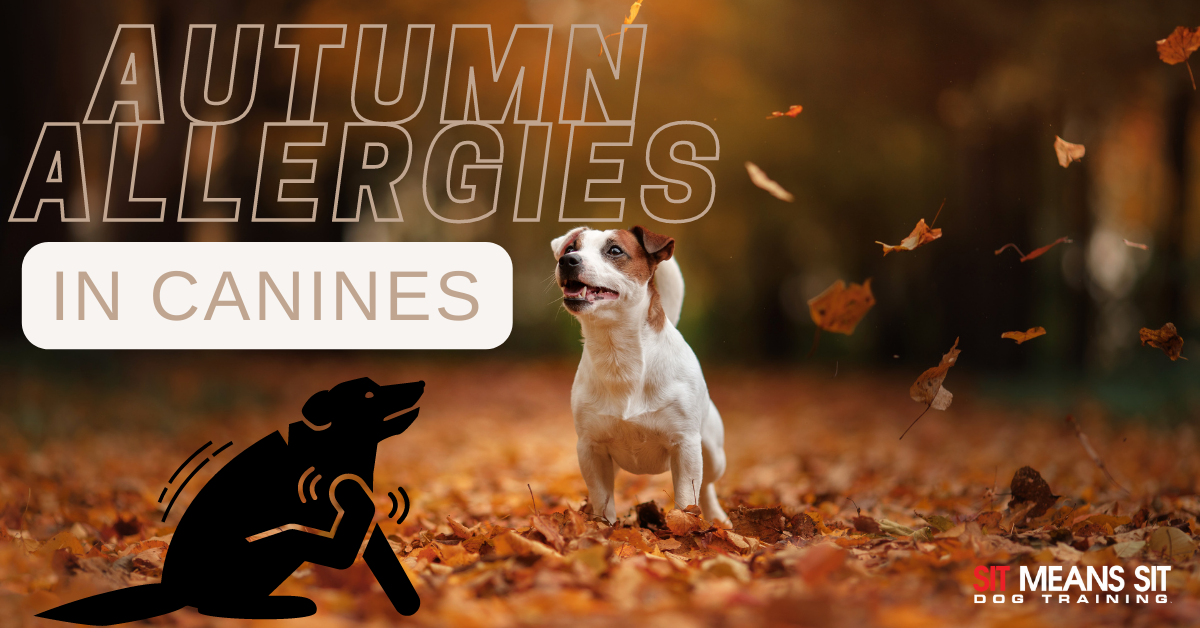
Autumn Allergies in Canines
You may notice that each year when fall rolls around, you may get some seasonal allergies. You might have a sore throat, stuffy nose, or itchy eyes. This is very normal for humans, but did you know it is common in dogs too?
Here is everything you need to know about autumn allergies in canines.
What are Fall Allergies
As the temperature begins to drop and our environment starts to change, we may feel these allergies coming on. But do you know what is causing them?
Most dog allergies in the fall come from plants like sagebrush, pigweed, goldenrod, lamb’s quarters, curly dock, and more. The most popular triggers in fall allergies are ragweed and mold. These are inhalant allergies that your dog not only breathes but that can settle within your pet’s fur and skin.
Your dog may experience allergies to these plants due to a hypersensitive or overactive immune system that causes allergic reactions.
Symptoms of Allergies
You may know the most common symptoms of fall allergies, like sneezing, itching, or watery eyes, but did you know there are so many more? The list of symptoms includes:
- Skin itching
- Skin irritation
- Stomach pain
- Diarrhea
- Ear infections
- Eye infections
- Dumps on the skin
- Hair loss
- Scratching or chewing at feet
- Sneezing
- Watery Eyes
Diagnose Allergies
How do you know if your dog is sick or if it is just seasonal allergies? The easiest way is to take your dog to the vet, where they will assess your dog and complete a physical exam. They will probably ask you a few questions about your dog’s recent behavior as well as the severity, onset, and length of its symptoms.
Treatment
If your dog is diagnosed with allergies, your vet will offer a variety of treatment options. These could include:
- Medication – these could include antihistamines or mild steroids to manage your pet’s symptoms
- Shampoo – if your dog is having a skin reaction, regular bathing with a certain shampoo may help to calm the skin
- Desensitization Therapy – if your pet’s allergies are more serious, your vet may prescribe immunosuppressants or injections to help your dog build immunity to allergens.
Overall, allergies will come and go and as long as you do what you can to keep your dog comfortable, you can try to enjoy the season with your pet before the cold sets in. And, if you want to help ease any discomfort for Fido, check out these tips for keeping your dog allergy free!
